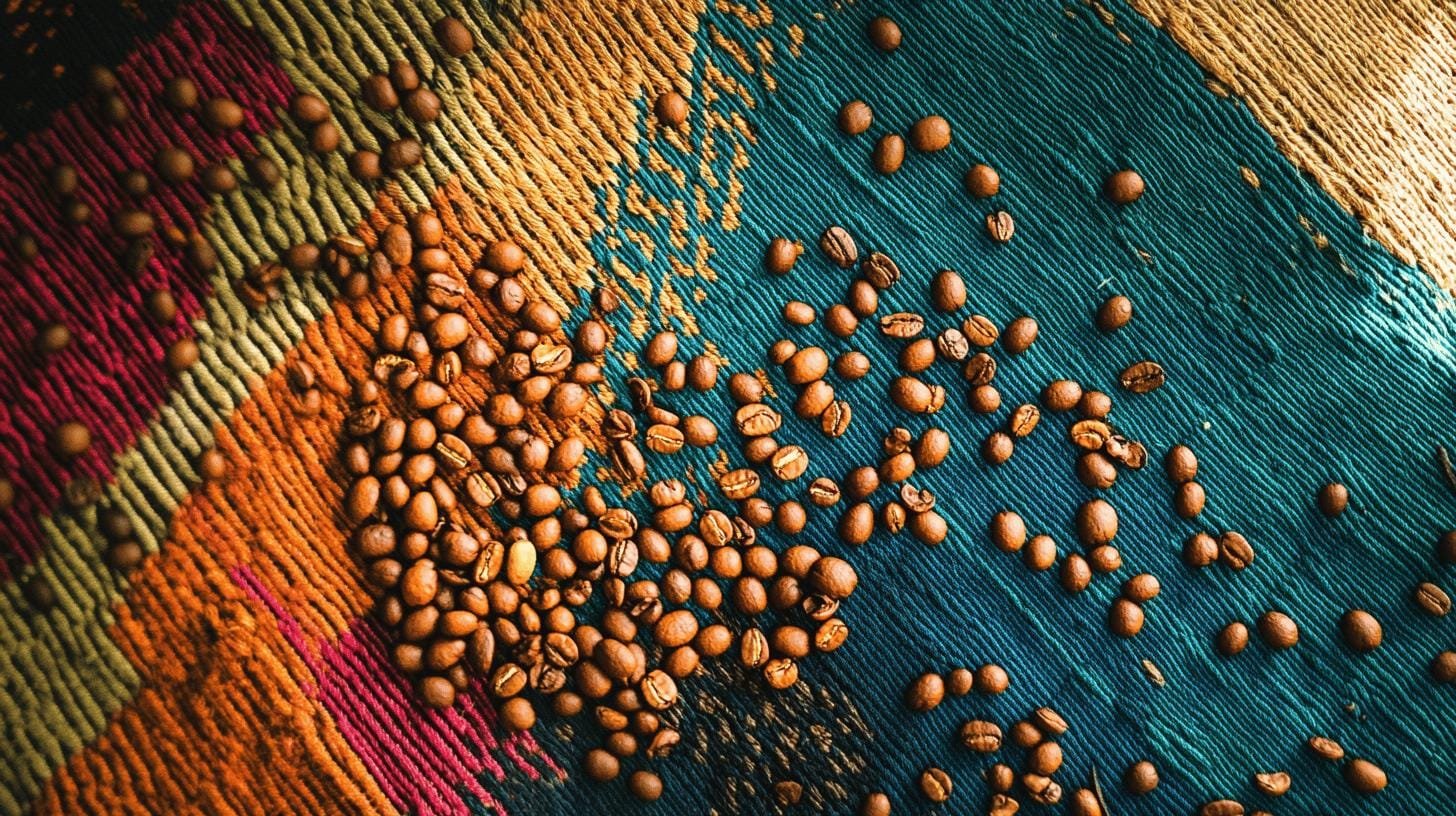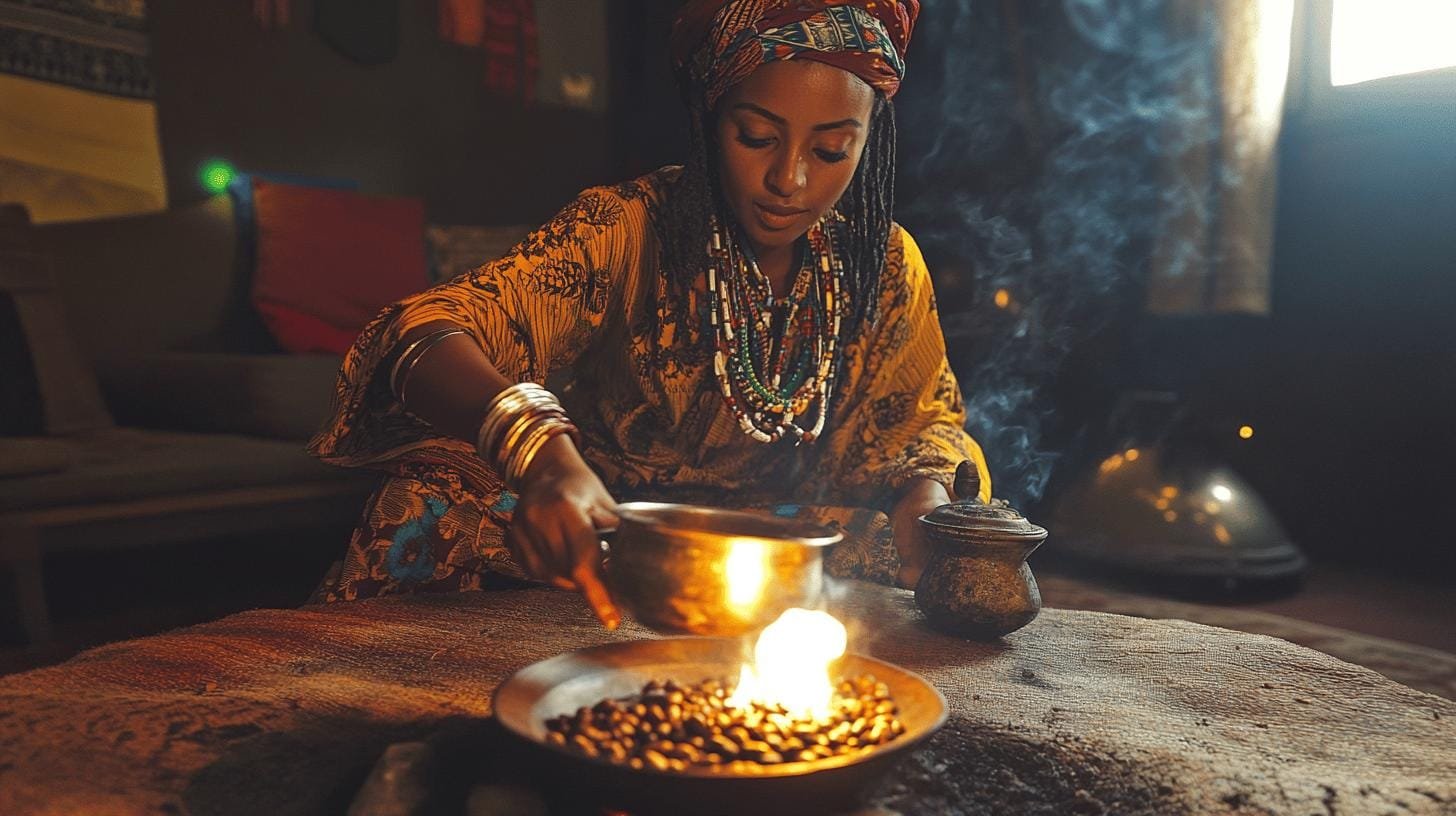
Emerging Approaches Redefining Craft-Focused Customer Experiences
Craft-focused small businesses have always relied on care, precision, and sourcing to stand out. What’s changing now is how those values are shown, not just

Is Ethiopian coffee the secret behind the world’s obsession with aromatic perfection? Often hailed as the birthplace of coffee, Ethiopia’s deep-rooted history in this beloved beverage offers a fascinating narrative. This article explores the historical origins of Ethiopian coffee, tracing its journey from the legendary tale of Kaldi—a goat herder discovering coffee around 850 AD—to its distinguished place as the home of Arabica coffee.
Uncover what makes Ethiopian coffee so special and how Ethiopia’s unique climate and landscape have made it a cornerstone in the global coffee culture, influencing coffee lovers and industry experts alike.
Ethiopian coffee’s origins are both legendary and traditional. A popular story from around 850 AD tells of Kaldi, a goat herder, who noticed his goats’ increased energy after eating red berries from a particular bush. Curious, Kaldi tried the berries himself and felt energized. News of his discovery spread to a local monastery, where monks began brewing the berries. The drink helped them stay awake during long prayers. This tale highlights coffee’s deep cultural roots and its ancient beginnings in Ethiopia.
Ethiopia is celebrated as Coffea Arabica’s birthplace, the most esteemed coffee species worldwide. The highlands offer ideal conditions for growing coffee, with rich soil and high altitudes enhancing unique flavors. As Arabica spread worldwide, Ethiopia’s historic role became crucial. The country’s coffee culture has shaped global trends, encouraging appreciation for rich, aromatic brews.Ethiopia’s impact is clear in the diverse and deep flavors cherished by coffee lovers globally, highlighting what makes Ethiopian coffee so special.

Ethiopian coffee is known for vibrant, fruity, and floral notes. These profiles come from the region’s altitude, climate, and soil. High altitudes slow cherry maturation, allowing sugars and flavors to develop fully. Ethiopia’s varied climates across growing regions add layers to these distinctive flavors.
Different climates and geographies in Ethiopia’s coffee regions significantly shape flavor complexity. Regions like Sidamo and Yirgacheffe each have unique terroirs, creating a wide range of flavors. Sidamo coffees often have fruity and earthy notes, whereas Yirgacheffe beans are floral and tea-like. This variety offers coffee enthusiasts diverse experiences.
Traditional methods like sun-drying and wet-processing are key in enhancing flavors. Sun-drying allows beans to absorb fruity notes, while wet-processing highlights acidity and floral tones. These methods contribute to what makes Ethiopian coffee so special.
Ethiopia’s coffee regions are renowned for their distinct terroirs, which influence flavor profiles through unique soil and climate conditions. This variety underpins the country’s reputation for distinctive and varied coffee flavors. Each area, from Sidamo to Guji, adds uniquely to Ethiopian coffee.
Sidamo coffee is famed for its fruity, earthy flavors with wine-like acidity. Fertile, volcanic soil and ideal altitude create conditions for complex layers and a smooth texture, pleasing those who seek vibrant and robust tastes.
Yirgacheffe’s coffee is known for floral notes, similar to jasmine or bergamot. The high altitudes and cooler climate slow cherry maturation, developing intricate flavors. Yirgacheffe’s terroir gives its coffee a light body and delicate, tea-like characteristics, appealing to those who prefer subtle tastes.
Limu coffee stands out for its fruity, spicy taste, with a slightly winey aftertaste. Its balanced acidity and clean profile are valued, making it a premium choice. Limu’s fertile lands and traditional methods produce rich, complex coffee aromas.
Harrar coffee features wild Arabica traits, like fruity and wine-like flavors with chocolate hints. Hand-processing techniques preserve these natural qualities, resulting in a bold, full-bodied cup, showcasing Ethiopian coffee cultivation and processing art.
While Jimma’s coffee is commercially viable, its taste improves when washed, offering a cleaner, more refined profile. Its typically strong flavors enhance with meticulous processing, elevating its role in Ethiopia’s coffee offerings.
Guji coffee, grown in mineral-rich lands, is gaining recognition for its unique flavors. Offering a complex, full-bodied taste, it reflects the area’s rich soil and varied topography. Guji’s growing appreciation highlights its emerging status and contribution to Ethiopia’s coffee diversity.

Ethiopian coffee ceremony’s is a revered tradition, more than just preparing a beverage. A social and cultural staple, it’s performed thrice daily and during special occasions. This ceremony fosters community and hospitality, bringing family and friends together. The process, lasting 2-3 hours, reflects coffee’s ceremonial importance in Ethiopian life.
Traditional roasting and brewing enhance Ethiopian coffee’s distinct flavors. Roasting starts with green beans pan-roasted over an open flame, developing a rich, smoky aroma and complex taste. Ground beans are then brewed in a “jebena,” highlighting the coffee’s oils and flavors.This traditional approach ensures each cup is a flavorful, aromatic experience, showcasing what makes Ethiopian coffee so special.
Ethiopia is very significant in the global coffee industry. It’s Africa’s largest and the fifth-largest global coffee producer. This position highlights its crucial market role. Coffee exports are vital to Ethiopia’s economy, with diverse regions like Sidamo and Yirgacheffe producing highly esteemed beans. These unique flavors contribute to what makes Ethiopian coffee so special and a global staple, enjoyed by enthusiasts and casual drinkers alike.
Ethiopian coffee is key in the specialty movement. Its diverse flavors, from fruity to complex, enrich the sector. Traditional practices, like the coffee ceremony, add authenticity, enhancing global appreciation. Ethiopian coffee sets quality and diversity benchmarks, inspiring global producers to focus on high-quality offerings that reflect their origins.
Exploring the origins of Ethiopian coffee unveils its rich history, starting with Kaldi’s legendary discovery around 850 AD.
Ethiopia, as the birthplace of Coffea Arabica,
has profoundly shaped global coffee culture. Regions like Sidamo and Yirgacheffe contribute distinct flavors due to their unique terroir.
The traditional Ethiopian coffee ceremony embodies deep cultural significance,
enhancing flavor and communal bonds. Ethiopian coffee’s influence in global coffee culture is marked by its pivotal role in the specialty coffee movement.
Understanding what makes Ethiopian coffee so special enhances its appreciation worldwide, promising a delightful journey for coffee aficionados.
Ethiopian coffee is celebrated for its unique flavor profiles, vibrant fruity and floral notes, and a rich cultural history. The diverse climate and high-altitude growing regions contribute to its complexity and high quality.
Traditional Ethiopian coffee is prepared using a cultural ceremony that involves roasting the beans, grinding them by hand, and brewing in a jebena. This method enhances flavors and is an essential social ritual.
Ethiopian coffee is believed to have originated from a legendary goat herder, Kaldi, around 850 AD. Ethiopia is recognized as the birthplace of Arabica coffee, significantly impacting global coffee culture.
The main types of Ethiopian coffee beans include Sidamo, Yirgacheffe, Limu, Harrar, Jimma, and Guji. Each region offers unique flavor profiles, from fruity and floral notes to earthy and spicy undertones.
Yes, Starbucks incorporates Ethiopian coffee into certain blends and limited-edition coffees, highlighting the unique flavors and rich heritage of Ethiopian beans in their offerings.

Craft-focused small businesses have always relied on care, precision, and sourcing to stand out. What’s changing now is how those values are shown, not just

How can brands create a more balanced and memorable customer experience by blending artisanal product quality with thoughtful everyday rituals that keep people coming back?

Independent coffee shops have always been about more than caffeine—they’re hubs of creativity, connection, and care. As café culture continues to evolve, new trends are

Introduction Independent cafes win when they feel like the neighborhood’s living room and operate with the discipline of a great kitchen. Below is a quick

Discover how top specialty coffee brands create lasting loyalty through storytelling, sourcing, and community connection. Real tips from 6 industry experts.

Discover the ultimate showdown between two beloved coffee brewing methods: the French press and Chemex. Explore how each technique caters to distinct palates, with the French press delivering bold flavors and the Chemex presenting a bright, clean taste.

Unlock the secrets to brewing the perfect cup of coffee with our comprehensive guide on using a coffee scale. Discover how precise measurements enhance flavor and consistency while eliminating bitterness.

Discover how water temperature plays a vital role in brewing the perfect cup of coffee. This article delves into the ideal temperature range of 195°F to 205°F for optimal flavor extraction, enhancing the enjoyment of high-quality beans.

Discover the world of curated specialty coffee bundles, perfect for enthusiasts seeking quality and craftsmanship. This article explores the benefits of ethically sourced, small-batch beans from brands like Equipoise Coffee, offering diverse flavor profiles that elevate your brewing experience.